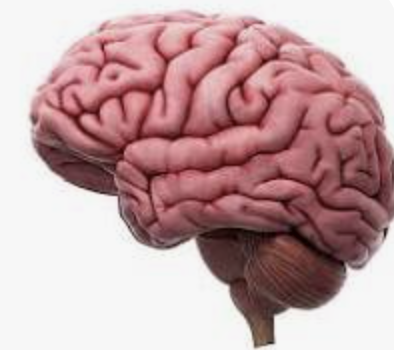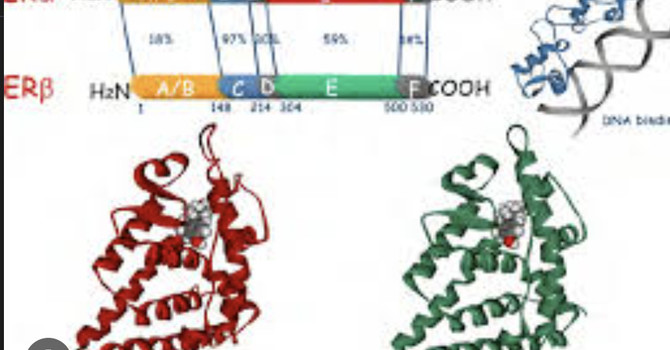
Understanding Brain Fog in Menopause
Many women in their 40s and 50s report feeling mentally foggy, forgetful, and unable to focus. Searching for words, misplacing items, or losing track of conversations—these are all common frustrations.
This experience, often called “brain fog,” is one of the most frequent cognitive complaints during perimenopause, affecting 40% to 60% of midlife women (Maki & Jaff, 2022).
Many worry that these symptoms could be early signs of dementia, but research shows that menopause-related brain fog is not dementia. Instead, it is linked to hormonal fluctuations, sleep disturbances, and increased stress, and in most cases, it improves over time (Maki et al., 2021).
With new research shedding light on how estrogen affects brain function, the conversation around hormone replacement therapy (HRT) as a treatment for cognitive symptoms is gaining traction.
What’s Happening in the Brain During Menopause?
Menopause is not just a reproductive transition—it’s a neurological transition. The decline in estradiol, the most potent form of estrogen, affects the brain’s energy metabolism, memory processing, and ability to focus.
Dr. Lisa Mosconi’s Groundbreaking Research
Dr. Lisa Mosconi, neuroscientist and director of the Women’s Brain Initiative at Weill Cornell Medicine, has conducted pioneering research on how menopause affects the brain (Mosconi et al., 2024).
Her PET imaging studies have found that:
- Estrogen receptors in the brain change during perimenopause, particularly in areas responsible for memory and focus.
- The brain compensates for estrogen loss by increasing receptor density, which may contribute to brain fog, mood swings, and memory issues.
- These changes do not indicate permanent cognitive decline but rather a transition phase in which the brain adapts to hormonal shifts.
Dr. Mosconi emphasizes that menopause-related brain fog is real but reversible. With proper interventions—such as HRT, diet, and lifestyle changes—women can support brain health and maintain cognitive function (Mosconi, 2021).
Can Hormone Therapy (HRT) Help Brain Fog?
For decades, research on HRT and brain function has produced mixed results. However, emerging evidence suggests that HRT may benefit cognitive function in women who begin treatment early in the menopausal transition (Henderson et al., 2016).
How HRT Supports Cognitive Function
HRT may help mitigate brain fog through several mechanisms:
- Estrogen helps maintain brain energy metabolism, ensuring the brain gets the glucose it needs to function optimally (Mosconi et al., 2024).
- By reducing hot flashes and improving sleep, HRT addresses factors directly linked to cognitive impairment.
- Some studies suggest estrogen therapy may improve memory and processing speed in symptomatic women (Maki et al., 2007).
However, most large-scale studies on HRT and cognition have focused on older postmenopausal women, not those in early menopause—where intervention may be most beneficial.
Key Considerations for HRT and Brain Fog
- Women who undergo surgical menopause (oophorectomy) before natural menopause should be on HRT to protect cognitive function (Rocca et al., 2007).
- The “timing hypothesis” suggests that starting HRT before age 60 or within 10 years of menopause may offer the most cognitive benefit (Gleason et al., 2015).
- Progesterone plays a role too, particularly in improving sleep quality and reducing anxiety-driven brain fog (Weber et al., 2021).
While HRT is not officially approved to prevent dementia, for many women, treating menopause symptoms with bioidentical hormone therapy can significantly enhance focus, information retention, and mental sharpness.
Ways to Improve Brain Fog in Menopause
1. Prioritize Sleep
- Aim for 7-9 hours of quality sleep per night.
- Manage night sweats with cooling bedding and lifestyle adjustments.
- Consider melatonin or magnesium to help regulate sleep cycles (Weber et al., 2021).
2. Follow a Brain-Healthy Diet
- Eat a Mediterranean diet rich in omega-3s, antioxidants, and healthy fats.
- Reduce ultra-processed foods and added sugars, which can worsen cognitive function (Livingston et al., 2020).
3. Stay Physically Active
- Engage in moderate exercise (3-5 days per week) to improve cognitive function.
4. Manage Stress and Mental Well-Being
- Practice mindfulness and meditation to improve focus and memory.
- Engage in cognitive challenges like puzzles, learning new skills, or social activities to strengthen brain function (Maki et al., 2021).
Final Thoughts on Menopause and Brain Fog
Brain fog is a real and common experience during perimenopause, but it does not mean permanent cognitive decline.
Dr. Lisa Mosconi’s research has shown that menopause directly impacts brain function, but the brain has the ability to adapt and recover over time.
For women struggling with severe brain fog and menopause symptoms, personalized treatment options—including bioidentical hormone therapy—may offer relief and support cognitive health.
Need Help Navigating Menopause?
Book a consultation today to discuss personalized hormone therapy and lifestyle strategies to protect your brain health.
Dr. Anat Sapan MD, specializing in peri/menopause care, advocates for a personalized approach combining Bioidentical Hormone Replacement Therapy with lifestyle strategies. Her telemedicine services in Arizona, California, Florida, Illinois, New York and Arizona. I aim to help women overcome menopausal symptoms and enhance their quality of life.

Anat Sapan, MD
Contact Me



